Filter by
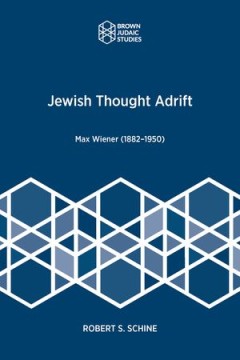
Jewish Thought Adrift Max Wiener (1882–1950)
Robert Schine’s intellectual biography of Max Wiener profiles a liberal German-Jewish thinker who turned toward Zionism as the only natural future for Judaism. Schine puts Wiener’s thought into conversation with those of his German contemporaries (both Jewish and Christian) while also resuscitating Wiener’s thought as a resource for contemporary theologians.
- Edition
- -
- ISBN/ISSN
- 9781951498634
- Collation
- -
- Series Title
- -
- Call Number
- -
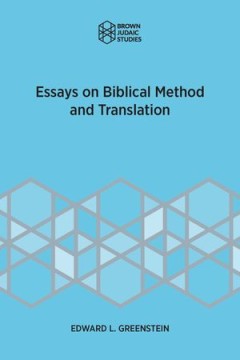
Essays on Biblical Method and Translation
This collection of essays deals with two interwoven themes. The first is a critical reflection on the often theoretical underpinnings biblical studies. The second engage theoretical reflections on translating the Bible. Together they show the need to bring theory and practice of biblical scholarship into closer relationship with each other.
- Edition
- -
- ISBN/ISSN
- 9781951498252
- Collation
- -
- Series Title
- -
- Call Number
- -
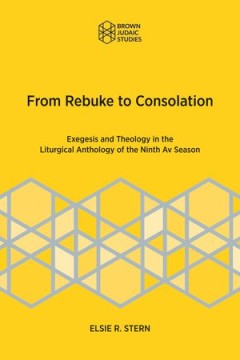
From Rebuke to Consolation Exegesis and Theology in the Liturgical Anthology…
This book contributes to the ongoing research into the emergence of rabbinic Judaism in the synagogue setting through a study of one constellation of rabbinic and synagogue literature, the sequence of prophetic lectionary texts designated for the Sabbaths surrounding Tisha b' Av, and the midrashirn, piyyutim and targumic texts that interpret them. An analysis of this literary constellation allo…
- Edition
- -
- ISBN/ISSN
- 9781946527325
- Collation
- -
- Series Title
- -
- Call Number
- -
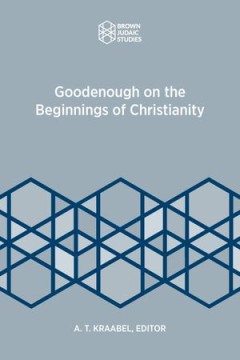
Goodenough on the Beginnings of Christianity
Few scholars loom as large in the history of scholarship on ancient Judaism than does Erwin Ramsdell Goodenough (1893-1965). A professor at Yale University for forty years, Goodenough fundamentally changed our understanding of Jews in the Hellenistic world, even when his suggestions turned out to be incorrect. Best known for his monumental, Jewish Symbols in the Greco-Roman Period, Goodenough a…
- Edition
- -
- ISBN/ISSN
- 9781951498313
- Collation
- -
- Series Title
- -
- Call Number
- -
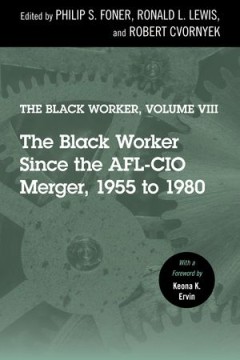
The Black Worker, Volume 8 : The Black Worker Since the AFL-CIO Merger, 195…
Published over the course of six years, the eight volumes of The Black Worker: From Colonial Times to the Present contain a voluminous amount of archival material. Through their publication, Philip S. Foner, Ronald L. Lewis, and Robert Cvornyek birthed a new generation of Black labor history scholarship. Theirs was big, synthesis-style, social, political, intellectual, and institutional history…
- Edition
- -
- ISBN/ISSN
- -
- Collation
- -
- Series Title
- -
- Call Number
- 650
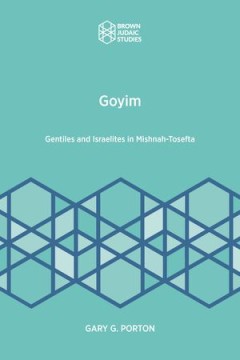
Goyim Gentiles and Israelites in Mishnah-Tosefta
This volume examines the way thatMishnah-Tosefta attempted to construct an Israelite ethnic identity in order to differentiate the Israelites from the gentiles who also populated the Land of Israel. This became an especially pertinent project with the destruction of the Jerusalem Temple, the failure of the Bar Kokhba Revolt, the increased influx of gentiles into the Land of Israel. and the soci…
- Edition
- -
- ISBN/ISSN
- 9781946527912
- Collation
- -
- Series Title
- -
- Call Number
- -
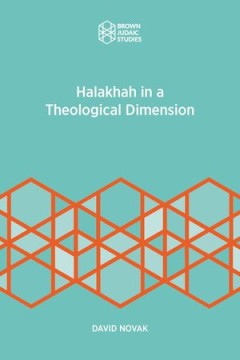
Halakhah in a Theological Dimension
In Halakhah in a Theological Dimension, David Novak argues that Jewish law (halakhah) is grounded on a set of theological assumptions relating to the covenant between God and Israel. Novak’s study is fundamental for understanding both his later work on the Covenant and the continuing philosophical discussion of the relationship between religious law and theology.
- Edition
- -
- ISBN/ISSN
- 9781951498610
- Collation
- -
- Series Title
- -
- Call Number
- -
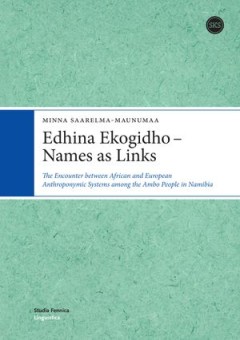
Edhina Ekogidho – Names as Links: The Encounter between African and Europea…
What are the most popular names of the Ambo people in Namibia? Why do so many Ambos have Finnish first names? What do the African names of these people mean? Why is the namesake so important in Ambo culture? How did the long independence struggle affect personal naming, and what are the latest name-giving trends in Namibia? This study analyses the changes in the personal naming system of the Am…
- Edition
- -
- ISBN/ISSN
- 9789522228161
- Collation
- -
- Series Title
- -
- Call Number
- 301 SAA e

The Black Worker, Volume 8 : The Black Worker Since the AFL-CIO Merger, 1955-…
Published over the course of six years, the eight volumes of The Black Worker: From Colonial Times to the Present contain a voluminous amount of archival material. Through their publication, Philip S. Foner, Ronald L. Lewis, and Robert Cvornyek birthed a new generation of Black labor history scholarship. Theirs was big, synthesis-style, social, political, intellectual, and institutional history…
- Edition
- -
- ISBN/ISSN
- -
- Collation
- -
- Series Title
- -
- Call Number
- 650
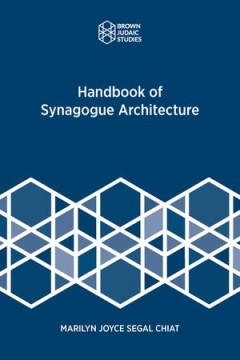
Handbook of Synagogue Architecture
Almost fifty years has passed since the publication of Marilyn J. Chiat’s Handbook of Synagogue Architecture (1982). Since then, there have been more finds and much more research on the issues that Chiat raises. Nevertheless, Chiat’s study still provides an important architectural guide to these synagogues.
- Edition
- -
- ISBN/ISSN
- 9781951498092
- Collation
- -
- Series Title
- -
- Call Number
- -
 Computer Science, Information & General Works
Computer Science, Information & General Works  Philosophy & Psychology
Philosophy & Psychology  Religion
Religion  Social Sciences
Social Sciences  Language
Language  Pure Science
Pure Science  Applied Sciences
Applied Sciences  Art & Recreation
Art & Recreation  Literature
Literature  History & Geography
History & Geography